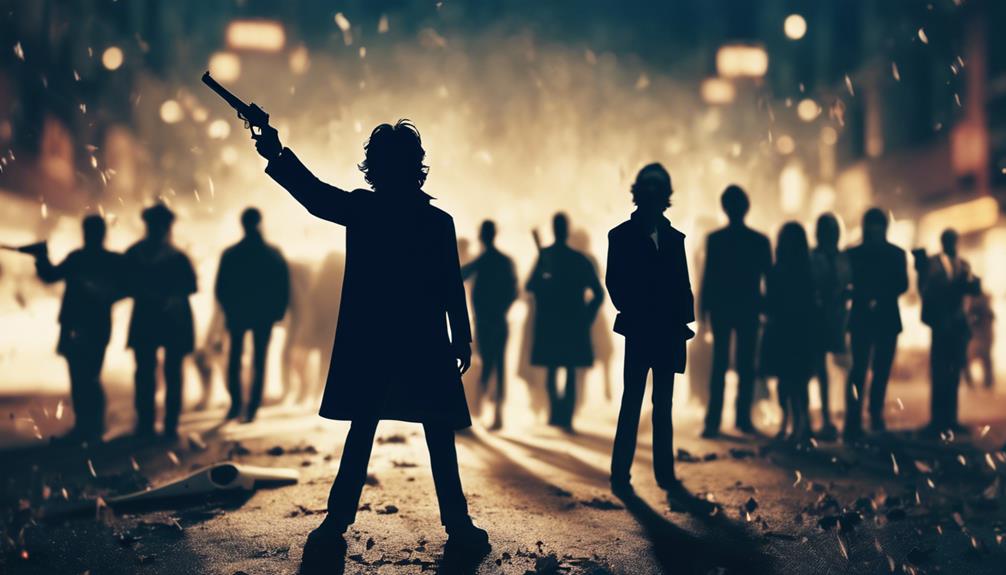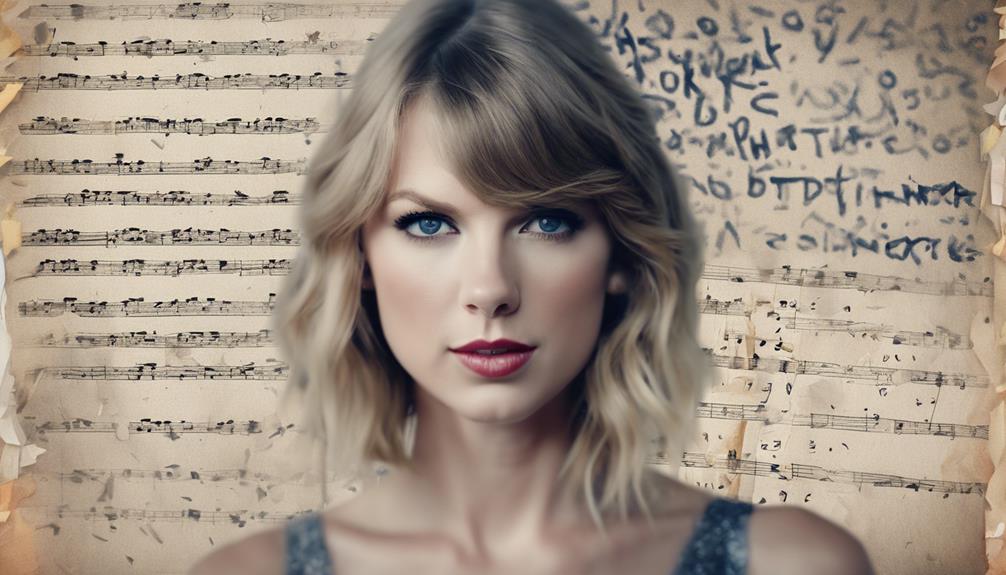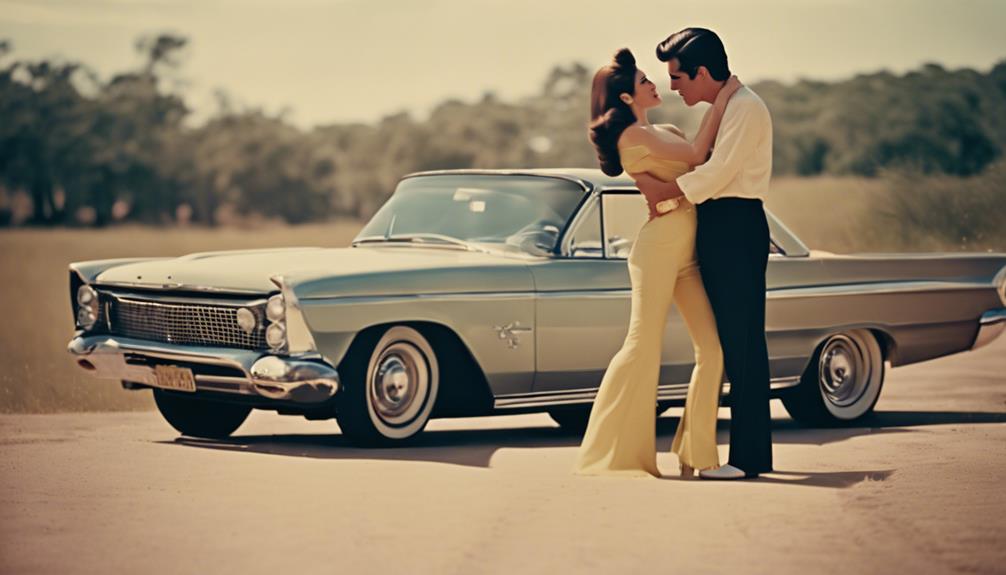The murder of John Lennon by Mark David Chapman on December 8, 1980, reverberated globally, impacting music history and society profoundly. Over 50,000 mourners gathered in Central Park, pausing even a Monday Night Football broadcast. Lennon's tragic death continues to resonate, underscoring his enduring legacy as a musical icon and peace advocate. The murder scene outside the Dakota building marked a turning point, with Chapman swiftly arrested and sentenced to 20 years to life. Yoko Ono's preservation of Lennon's memory juxtaposed with Chapman's confinement showcase divergent paths post-event. December 8, 1980, forever changed lives and cultural narratives.
Key Takeaways
- The murder of John Lennon by Mark David Chapman on December 8, 1980, sent shockwaves globally.
- Over 50,000 gathered in Central Park for a vigil, showcasing the impact of Lennon's death.
- Lennon's legacy as a musical icon and advocate for peace endures, resonating even after 43 years.
- The tragedy interrupted a Monday Night Football broadcast, emphasizing its profound and immediate impact.
- Chapman's trial, sentence, and repeated denial of parole highlight the ongoing repercussions of Lennon's murder.
Impact of John Lennon's Murder
The murder of John Lennon by Mark David Chapman on December 8, 1980, sent a timeless shockwave through the world, leaving a lasting impact on music history and society as a whole.
Lennon's untimely death sparked an outpouring of grief from fans worldwide, with over 50,000 people gathering in Central Park for a vigil to mourn his loss.
The tragic event continues to resonate even after 43 years, underscoring the profound influence Lennon had on music and culture.
The news of Lennon's passing even interrupted a Monday Night Football broadcast, highlighting the widespread reach of the tragedy.
His legacy as a musical icon and advocate for peace remains a poignant reminder of the fragility of life and the enduring power of his art.
John Lennon's Final Days
John Lennon's final days were marked by routine activities and intimate moments with his family, providing insights into his personal life amidst his public persona. In his last interviews, Lennon expressed his thoughts on society's fascination with deceased heroes and his views on world violence and peace.
On his final day, he spent time with Yoko Ono, engaging in ordinary tasks like getting a haircut and having a photo shoot. Despite his fame, Lennon's focus seemed to be on simple pleasures with his loved ones.
As the world mourns his untimely death, these glimpses into his final moments offer a poignant perspective on the man behind the music, showcasing his humanity and vulnerability in the face of tragedy.
Murder Scene and Aftermath
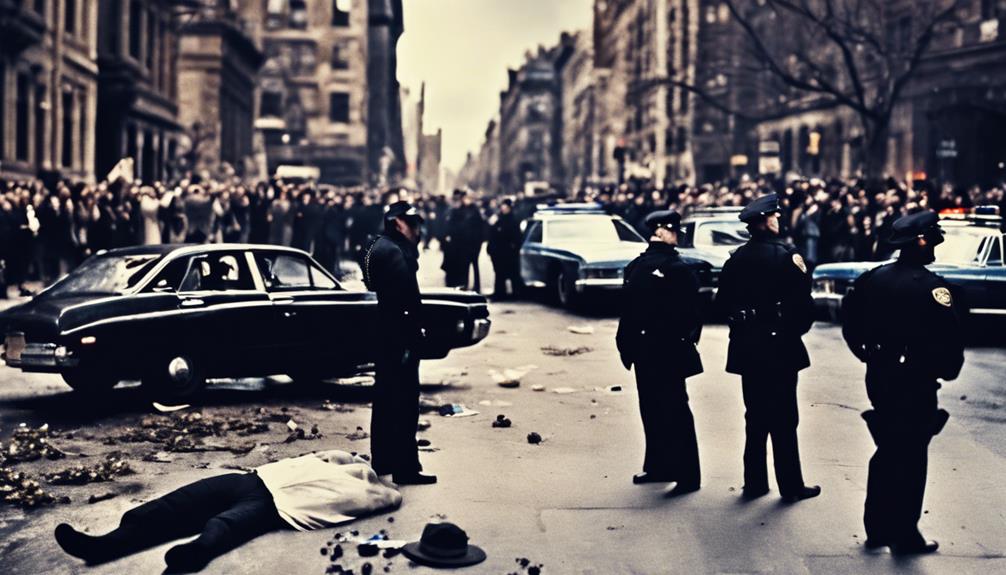
Upon stepping out of the Dakota building, John Lennon was tragically shot by Mark David Chapman, sparking a wave of shock and sorrow that reverberated globally. Lennon was rushed to St. Luke's Roosevelt Hospital, where he was pronounced dead.
The NYPD swiftly arrested Chapman, who'd requested Lennon's autograph earlier that day. The murder scene outside the Dakota drew crowds of mourners, with thousands gathering in Central Park to pay their respects.
The immediate aftermath of Lennon's murder left a profound impact on not just his fans but the entire music industry. The news spread quickly, and the world mourned the loss of a music icon. The tragic event marked a turning point in music history, leaving a void that could never be filled.
Mark David Chapman's Trial
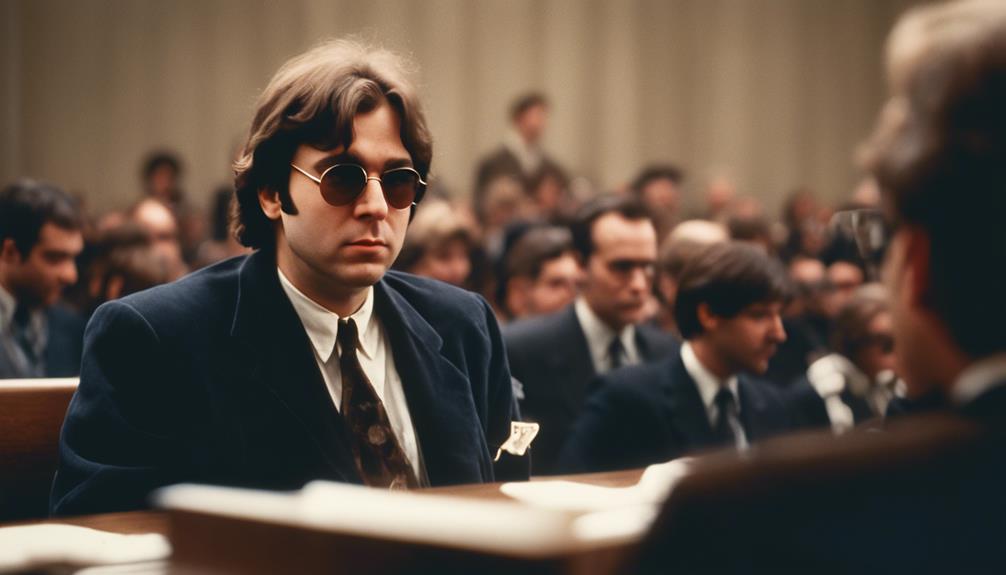
Mark David Chapman's trial for the murder of John Lennon captivated the public's attention with its legal proceedings and insights into Chapman's motivations. Charged with second-degree murder, Chapman underwent psychiatric evaluations that diagnosed him with mental illnesses.
In 1981, he pleaded guilty to the murder and was subsequently sentenced to 20 years to life in prison. Chapman remains incarcerated at Green Haven Correctional Facility, with his parole being denied 12 times.
The trial shed light on the tragic events that led to Lennon's untimely death and provided a glimpse into Chapman's state of mind at the time of the murder. The legal process surrounding the case offered closure to many who were deeply affected by the loss of the legendary musician.
Legacy and Post-Event Lives
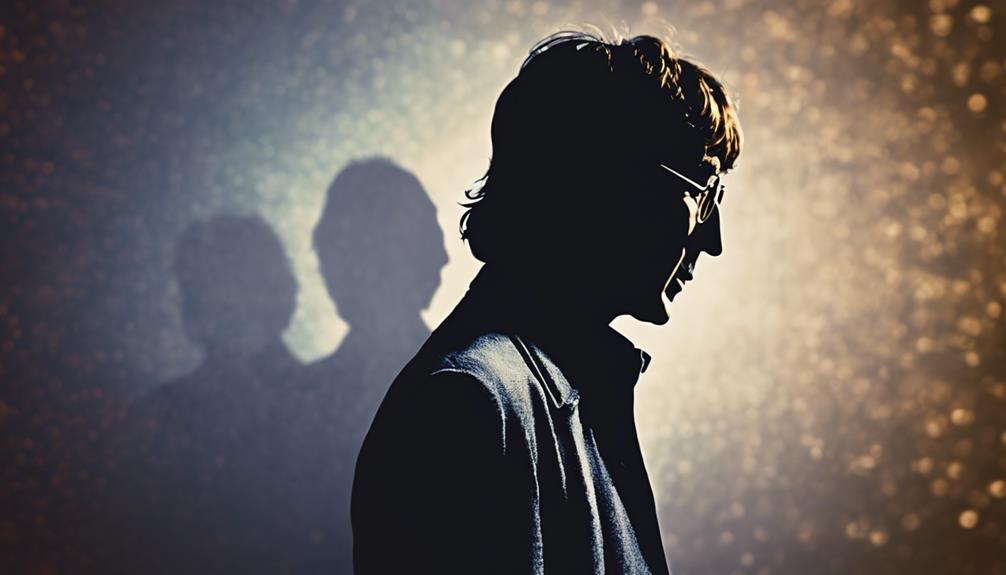
Following the aftermath of John Lennon's murder, the lives of those connected to the event, including Yoko Ono and Mark David Chapman, took divergent paths. Yoko Ono relocated to her farm in upstate New York after Lennon's death, where she continued to preserve memories of him at the Dakota, where she resides.
Mark David Chapman, on the other hand, has been denied parole 12 times and remains incarcerated at the Green Haven Correctional Facility. The film 'Chapter 27' was inspired by J.D. Salinger's novel 'The Catcher in the Rye,' a book Chapman encouraged people to read.
These individuals' lives have been profoundly influenced by the tragic events of December 8, 1980, with each of them charting their own unique post-event journeys.
Frequently Asked Questions
What Was Mark David Chapman's Motive for Killing John Lennon?
Mark David Chapman's motive for killing John Lennon was rooted in a delusional obsession with the novel 'The Catcher in the Rye.'
Chapman fixated on the book's themes of alienation and identified with its protagonist, Holden Caulfield.
He believed that by committing the heinous act, he'd attain notoriety and assume the role of a tragic anti-hero.
This misguided notion led to the tragic and untimely death of the iconic musician.
How Did Yoko Ono Cope With John Lennon's Death?
Yoko Ono coped with John Lennon's death by finding solace in routine activities and moments with her family. She relocated to her farm in upstate New York, seeking privacy and peace.
Ono also dedicated herself to preserving Lennon's memory at the Dakota, where she continues to reside. Despite the tragedy, she persevered through her grief, demonstrating strength and resilience in the face of such a profound loss.
Was There Any Warning Signs of Mark David Chapman's Actions?
There were warning signs of Mark David Chapman's actions before he shot John Lennon. Chapman had a history of mental illness, and his behavior leading up to the murder, such as fixating on 'The Catcher in the Rye' and his sudden infatuation with Lennon, raised concerns.
Additionally, Chapman had expressed violent tendencies and erratic behavior, indicating a potential for harm. These signs underscored the tragic outcome that unfolded on December 8, 1980.
How Did John Lennon's Family React to His Murder?
The Lennon family reacted to his murder with profound sorrow and disbelief. Yoko Ono, along with Lennon's sons, expressed deep grief and shock at the tragic loss.
Their lives were forever changed by this senseless act of violence. Like a shattered mirror reflecting endless pain, the family navigated a new reality without John Lennon, mourning his absence in their lives.
The impact of his murder reverberated through their hearts, leaving an indelible mark on their souls.
What Impact Did John Lennon's Death Have on the Music Industry?
The impact of John Lennon's death on the music industry was profound. His murder in 1980 sent shockwaves through the music world, leading to a collective sense of loss.
Lennon's innovative work with The Beatles and his solo career had a lasting influence on artists and fans alike. The tragedy served as a reminder of the fragility of life and the power of music to unite people across generations.
Conclusion
To wrap up, the tragic murder of John Lennon in 1980 continues to reverberate through history like a timeless shockwave, leaving a lasting impact on music and society.
Despite the passage of decades, the memory of Lennon's untimely death remains vivid, a stark reminder of the fragility of life and the enduring legacy of his music.
The events surrounding his murder serve as a poignant reminder of the power of art, the complexities of human nature, and the unpredictable nature of fate.

